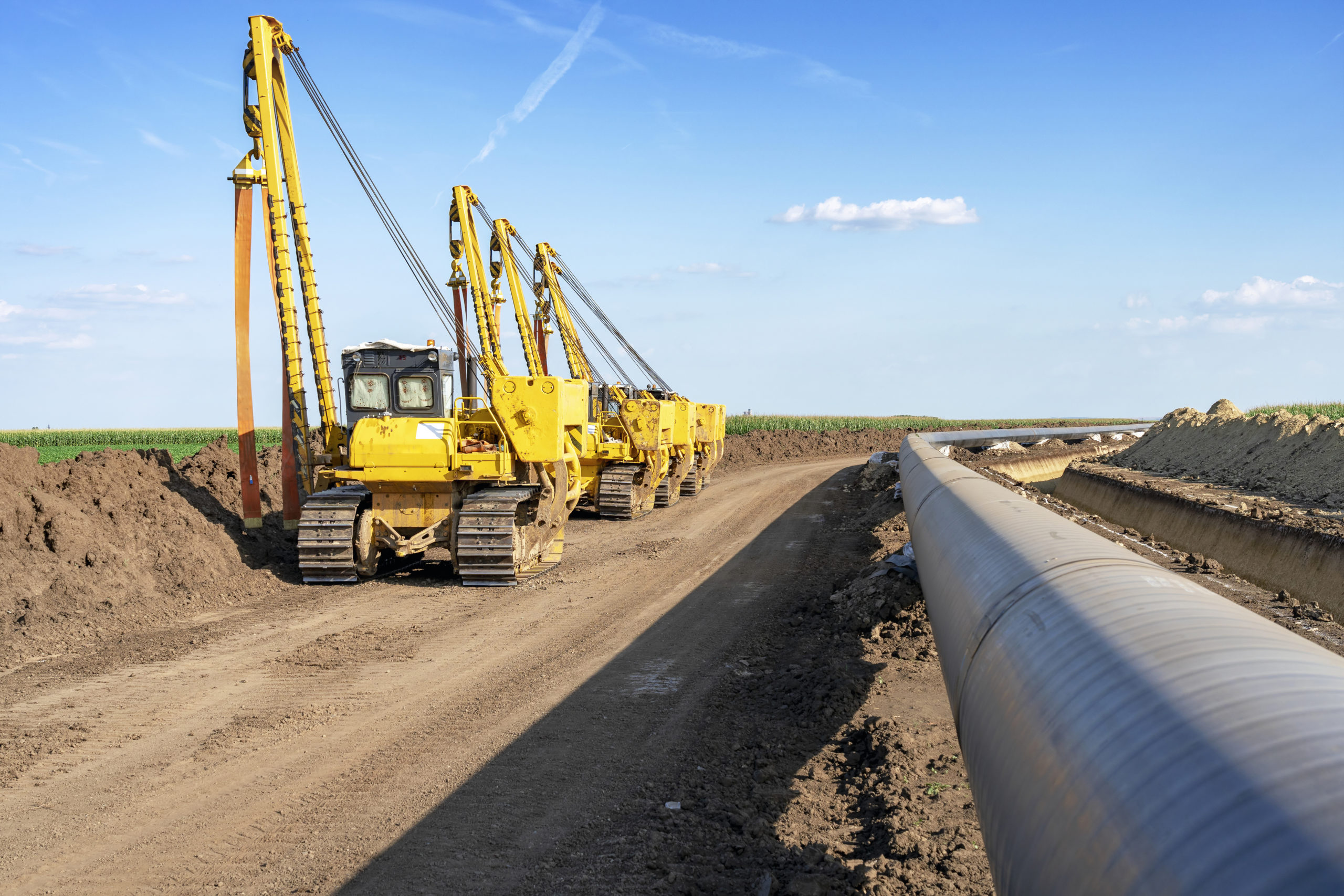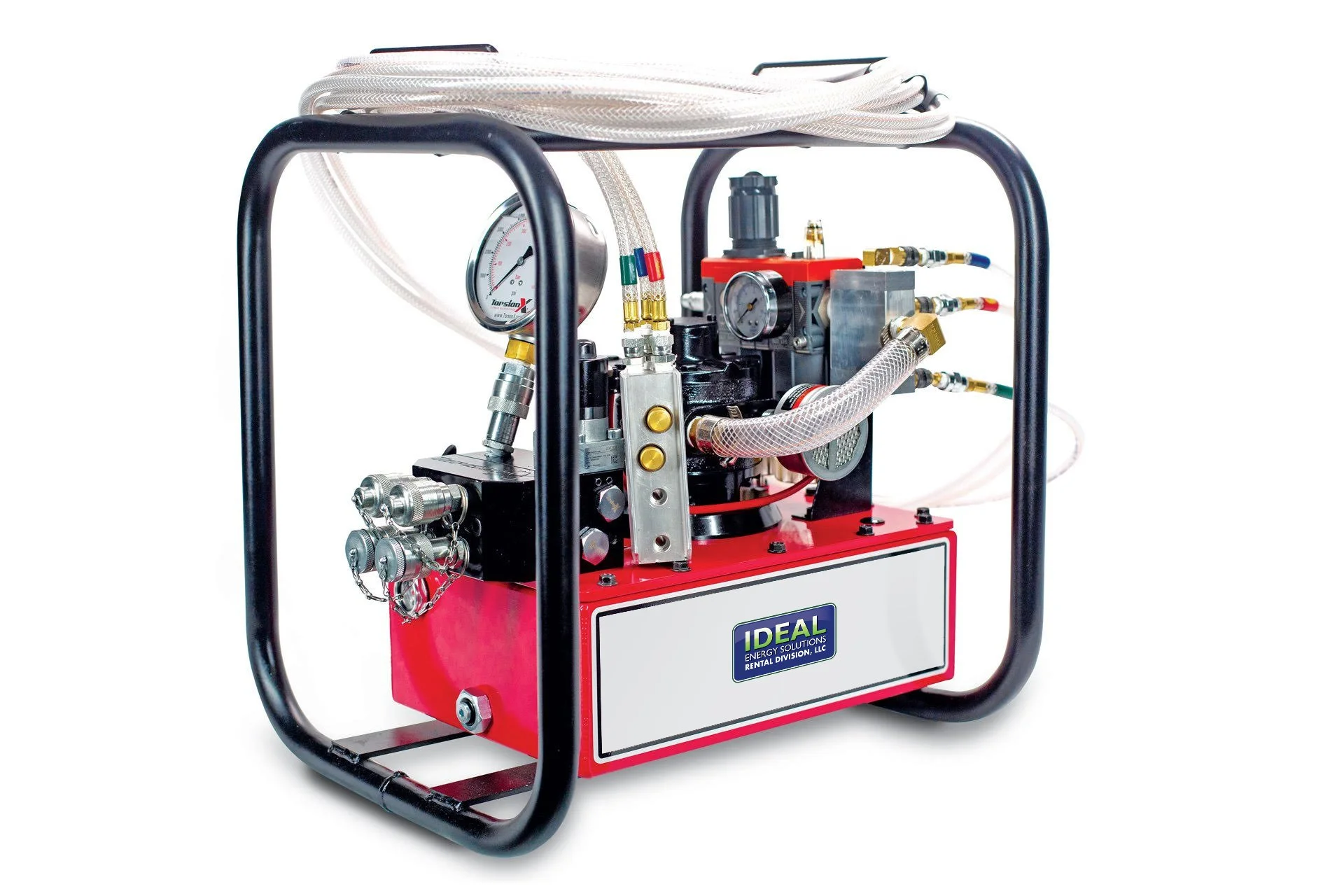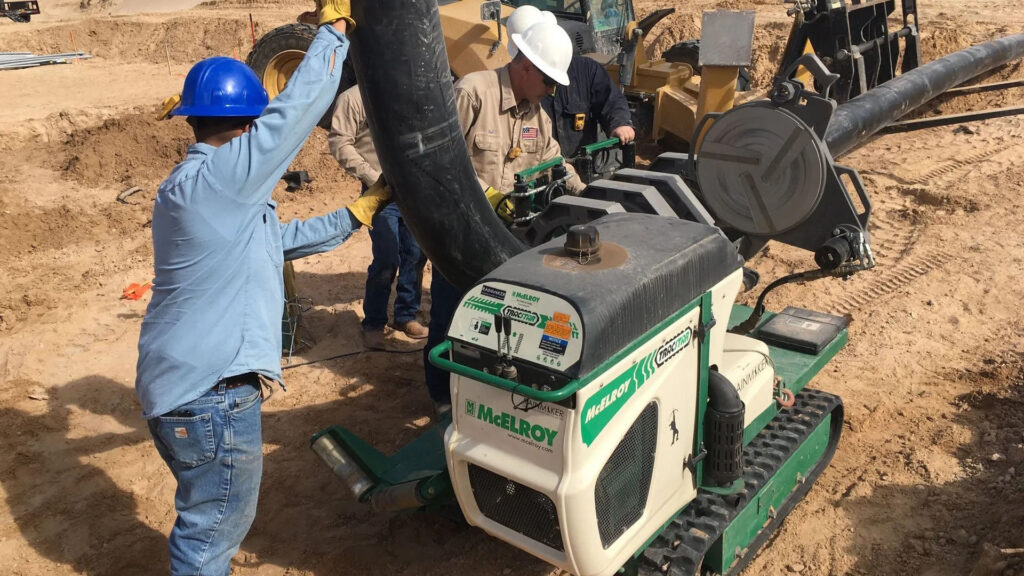How Superior Oilfield Rentals oilfield boosts productivity on-site
Wiki Article
A Comprehensive Overview to the Different Types of Oil Field Equipment and Pipeline Equipment Available
The oil and gas sector relies heavily on specific tools for efficient extraction and transport. Various sorts of equipment, from drilling rigs to storage space tanks, play vital functions in this complex procedure. Each tool offers distinct features that contribute to overall functional success. Understanding these components is essential for any person associated with the market. As the industry evolves, so as well do the modern technologies that support it. What improvements are on the horizon?
Drilling Rigs: The Backbone of Oil Exploration
Drilling rigs serve as the necessary machinery in the domain name of oil exploration, allowing firms to accessibility hydrocarbon reserves buried deep beneath the Planet's surface area. These rigs are available in numerous types, including land rigs, offshore rigs, and mobile systems, each developed to operate in details settings. Furnished with sophisticated innovation, drilling rigs can penetrate geological developments with accuracy, making certain effective source extraction. The structural stability and functional abilities of these rigs are important, as they have to withstand severe conditions and considerable stress. The choice of an exploration gear affects the general job expense and timeline, making it an important factor to consider for oil firms seeking to maximize their exploration initiatives and make the most of performance in their operations.Pumps: Crucial for Liquid Motion
In the oil extraction process, the duty of pumps is substantial, facilitating the motion of fluids throughout different stages of production. Pumps are essential for delivering petroleum, water, and various other liquids from underground tanks to the surface area and afterwards through pipelines to refineries. They come in different kinds, including centrifugal, positive variation, and completely submersible pumps, each offering particular purposes based upon the fluid attributes and operational demands. Centrifugal pumps are commonly used for their performance in high-flow applications, while favorable displacement pumps master handling viscous fluids. The selection of pump impacts overall performance, functional safety, and maintenance expenses. Proper selection and upkeep of pumps are essential for enhancing production and decreasing downtime in oil area procedures.Shutoffs: Controlling Circulation and Pressure

Valves play a crucial role in handling the flow and pressure of liquids within oil areas and pipes. Various types of shutoffs offer distinctive applications, each developed to satisfy specific functions essential for reliable procedure - Superior Oilfield Rentals oilfield. Understanding the attributes and uses these shutoffs is vital for optimizing system performance and security
Kinds of Valves
Vital elements in oil area procedures, valves play a crucial role in controlling the circulation and pressure of fluids within pipes and equipment. Various kinds of shutoffs are utilized to satisfy the diverse requirements of oil and gas manufacturing. Common kinds include entrance shutoffs, which offer a straight-line circulation and marginal stress decrease; world valves, recognized for their throttling abilities; and round valves, acknowledged for their fast on/off control. In addition, check valves prevent heartburn, while butterfly valves supply a light-weight option for regulating circulation. Each valve type is developed with certain materials and setups to endure the extreme problems often located in oil areas, making certain reliability and effectiveness in operations. Comprehending these types is critical for effective system administration.Valve Applications and Features
While different sorts of valves serve unique objectives, their primary applications focus on controlling circulation and stress within oil and gas systems. Shutoffs such as entrance, world, and round valves control liquid activity, making sure peak efficiency and safety and security. Gateway shutoffs are frequently utilized for on/off control, giving very little flow resistance. World valves, on the various other hand, deal specific flow law, making them appropriate for throttling applications. Sphere valves are preferred for their quick operation and tight sealing abilities. Furthermore, pressure safety valve are crucial for avoiding system overpressure, safeguarding tools integrity. On the whole, the ideal selection and application of valves enhance operational effectiveness, making sure the trustworthy transportation of oil and gas through pipelines and processing facilities.Compressors: Enhancing Gas Transportation
Compressors play a critical function in the efficient transport of gas, making certain that it relocates efficiently via pipes over cross countries. These devices raise the pressure of all-natural gas, enabling it to get over friction and elevation adjustments within the pipeline system. Furthermore, compressors help with the balancing of supply and need, accommodating fluctuations in usage and production rates. Different kinds of compressors are employed in the market, consisting of centrifugal, reciprocating, and rotating screw compressors, each offering distinctive benefits based on the functional demands. Routine maintenance of these compressors is vital to make the most of performance and decrease downtime, ultimately adding to a trusted gas transportation network. Their essential feature underscores the value of compressors in the general oil and gas framework.Storage Tanks: Safe and Reliable Fluid Management
Efficient transport of all-natural gas relies upon different support group, one of which is the appropriate management of storage space tanks. These containers play an important duty in safely including liquids, guaranteeing that operational effectiveness is kept while decreasing environmental risks. Constructed from long lasting materials, they are developed to stand up to high pressures and harsh components. Correctly sized and purposefully situated, tank help with the smooth flow of all-natural gas and various other fluids, stopping bottlenecks in supply chains. Normal upkeep and surveillance are crucial to identify leakages or structural concerns, promoting security and conformity with regulative criteria. Inevitably, the reliable administration of tank is important for the overall stability and integrity of the oil and gas sector's fluid handling systems.
Pipeline Equipments: Facilities for Transportation
Pipeline systems serve as the backbone of the oil and gas sector, facilitating the effective transport of hydrocarbons over substantial distances. These systems are composed of numerous parts, consisting of pipes, valves, pumps, and compressors, all diligently created to guarantee seamless flow. The products utilized in pipeline construction, often steel or high-density polyethylene, are selected for toughness and resistance to rust. Pipeline networks can extend throughout land and water, connecting production sites to refineries and distribution. In addition, advanced innovation makes it possible for real-time monitoring of flow rates and pressure levels, boosting operational effectiveness. The critical placement of these pipelines lessens environmental impact while taking full advantage of resource access, consequently playing a vital function in conference power needs around the world.Safety And Security Equipment: Making Sure Employee and Environmental Defense
The procedure of pipeline systems, while necessary for energy pipeline leak detection system transport, also provides significant security challenges for workers and the atmosphere. Safety and security tools plays a check my site significant role in minimizing these dangers. Personal protective devices (PPE) such as safety helmets, gloves, and non-slip footwear safeguards workers from physical risks. Furthermore, gas discovery systems monitor for leaks, making certain that dangerous compounds do not present a danger to employees or the surrounding community. Emergency shutdown systems are necessary for swiftly halting procedures during a dilemma, avoiding prospective catastrophes. Spill control products, consisting of absorbents and obstacles, are fundamental for decreasing ecological effect. On the whole, purchasing comprehensive security tools is critical for preserving functional honesty and shielding both workers and the setting in the oil and gas industry.
Frequently Asked Questions
Exactly how Do I Pick the Right Oil Field Equipment for My Project?
Selecting the right oil area devices includes assessing task specifications, spending plan restrictions, and functional needs. Consider aspects such as tools integrity, compatibility with existing systems, and the provider's track record to ensure peak efficiency and safety.What Are the Maintenance Needs for Oil Field Equipment?
Maintenance needs for oil field tools consist of normal evaluations, lubrication, and prompt repair work. Operators should likewise abide by leeboy paver for sale manufacturer standards, display performance metrics, and warranty compliance with security laws to boost longevity and efficiency.
Exactly How Can I Ensure Compliance With Environmental Regulations?
To ensure conformity with ecological laws, companies should carry out regular audits, execute finest techniques, spend in training, keep proper paperwork, and stay upgraded on regulation (Superior rentals squeeze tools). Collaboration with ecological firms can additionally improve adherence to guidelinesWhat Is the Ordinary Life Expectancy of Pipeline Equipment?
The average lifespan of pipeline tools normally varies from 20 to half a century, relying on elements such as worldly top quality, ecological conditions, and upkeep methods. Normal examinations can greatly affect long life and functional performance.How Do I Safely Move Oil Field Equipment to Remote Locations?
Carrying oil area tools to remote places requires careful planning, including route analysis, securing authorizations, making use of ideal cars, and guaranteeing safety procedures are complied with. Proper training and communication among crews are vital for effective transport.Report this wiki page